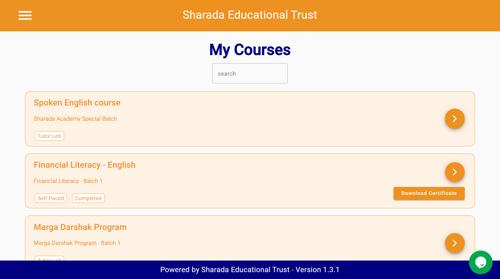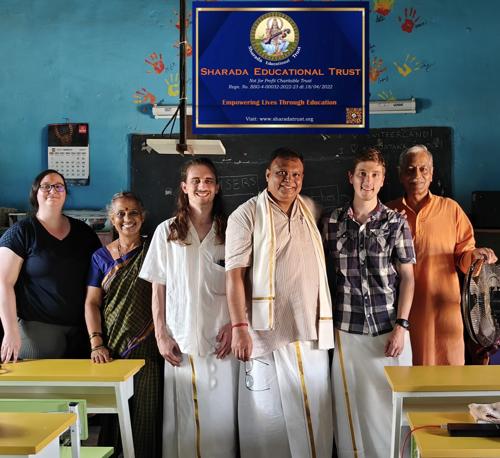Learning Management System (LMS) for Rural India
- Degree programme: BSc in Informatik
- Authors: Tobias Erpen, Alayne Larissa Hiltmann, Lukas Vogel
- Thesis advisor: Prof. Dr. Kenneth Ritley
- Year: 2024
India is a huge country, not just in size but also in culture and languages - with 447 native languages accompanied by countless dialects. But the most important language for any career - English - is rare in the rural parts of India. The NGO Sharada Educational Trust brings spoken English and financial education to the rural communities near Bangalore. To aid their mission of educating the underserved parts of India we created a LMS tailor-made for their unique needs.
Problem
India grew very rapidly in the last couple of decades. This growth brought wealth and opportunity with it, especially in the IT industry. Nowadays the children of the original “IT-Boomers” have grown up enjoying a good education and are given preference for the new IT jobs. The poorer and rural areas can no longer compete so have been left behind and are struggling to catch up.
Goal
We set out to create a mobile learning app to reach those left behind. The app should support the teaching of spoken English and aid in automating and organizing the curriculum. We partnered with the Sharada Educational Trust to tailor the app to their needs and to overcome their specific challenges, including reaching rural community teachers and college girls.
Requirements
The final product was created to be used with mobile phones in mind. The people in the rural communities mostly have no access to a computer or laptop, and often they do not even have an email address. So we used many creative solutions, such as a date-of-birth and phone number to authenticate the users.
The app should be able to support user management, offer reusable courses, and provide a way to run a course with a batch of students and a tutor.
Results
The final product is an app “optimized for the minimum.” The end users do not have a background in or much experience with modern technology and usually have very old devices. So, of high importance was the creation of an easily understandable and navigable app that also does not overwhelm with an overload of information.
In May 2024 we carried out a soft launch at a rural government school in Cheeluru, India, which will be the first to use the app. At present the app is live and the Sharada Educational Trust is expanding the rollout to the whole of Karnataka (a state in India), and later throughout the country.
Conclusion and outlook
The project had many challenges, mainly based on cultural differences and the very inexperienced target user base. Nevertheless, a working first version was developed that will continue to be used and enhanced, perhaps even by another group of students doing the bachelor's thesis at BFH and eager to make a positive impact on the world.

